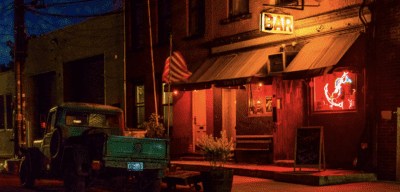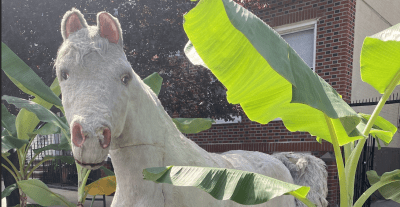Interview with 2018 NBCC Autobiography Award Finalist Henry Marsh
For the past four years, the National Book Critics Circle has partnered with The New School’s MFA Creative Writing program, allowing the students to interview each of the NBCC Awards Finalists. In addition to building excitement for the Awards Finalist Reading and Ceremony held at the New School March 14th-15th, these interviews have built an intergenerational bridge between the writers of today and tomorrow.
This year, as part of the ongoing collaboration, and in support of the NBCC’s conversation about reading, criticism, and literature that extends from the local to the national, Brooklyn Magazine will publish and promote the interviews between NBCC Finalists and the current students of The New School.

After writing your New York Times best-selling memoir, Do No Harm, what inspired you to write, Admissions: Life as a Brain Surgeon? How much time did you take in between each book? When did you begin writing it?
The first book was a re-writing of parts of the diary I have kept since the age of 12. That took about 10 years. The second book took less than a year and I started it two years after publication of the first book—some new material and some old, which had not been in the final version of the first book.
In your book you speak so easily about surgical procedures. You did a great job translating these complexities into layman’s terms. Did you find this difficult to do—writing a medical memoir to readers who aren’t necessarily doctors?
I didn’t find it especially difficult. Good doctoring (and I can only hope I am one) involves spending a lot of time explaining things to patients in language they can understand.
I love your sentimentality towards animals, a theme that recurs again and again. I think people often associate surgeons with a removed, sterile affect, so it was refreshing to see this side of you—a surgeon who pities the pig cadavers. I wonder if it’s difficult to maintain this sentimentality in your vocation. Do you find it hard to strike a balance between compassion and practicality?
Yes, it’s very difficult and it’s the central problem at the heart of medicine. Where you are on the spectrum between compassion and scientific detachment depends on many factors: your age, your personality, your role models, the culture of the department and country in which you work, and your own personal experiences, or your family’s, of being a patient (which most young doctors and nurses don’t have).
As a nonfiction writer, I sometimes recognize things about myself while I’m writing. Did you come to discover some things about yourself that might have surprised you? You speak so much about your family, your first marriage, your son William, your parents. Did you learn anything about yourself while you were writing that perhaps you didn’t quite realize before?
No, I don’t think so. I have had psychotherapy twice during my life; I would like to think I am reasonably good at looking at myself. My wife [second] and three children are fairly good at gently criticizing me, and that helps—although I don’t always take it with a good grace.
I was interested in your juxtaposition of English healthcare and Nepalese healthcare. This is, of course, beyond my depth but I actually really like some of the Nepalese practices. In one chapter you describe, “hand-bagging” which is family members physically squeezing a respiratory bag of their brain-dead loved one, so that they can take the patient home and have a dignified death. I like the idea of a death occurring in the home, surrounded by loved ones and familiar walls. I think Americans are afraid of death. In your time overseas were there are any Nepalese practices that you found you preferred to English ones?
Dying at home, yes. In the UK, more than 50% of people die in hospitals. American healthcare—both patients and doctors—are especially bad at not knowing when to stop and let Nature take its course.
I’ve been exploring mortality a lot lately—in my own family and in my own writing. Did you ever come across a patient who accepted their mortality well? Can you recall anyone who responded in an either peaceful or interesting way?
As a neurosurgeon, most of my patients are not compos mentis when near death. Most people put on a brave face when they meet doctors and we only have a brief glimpse of what they really feel. As a clinician, I am often still holding out hope to patients that treatment might help a little. I deliver death sentences more often to relatives than patients.
I love when you described your childhood dog, the experience of power and cruelty and its effects on a living creature. You describe the regret you felt and how this lesson has possibly made you a kinder surgeon, such a beautiful insight. Did this memory of your dog occur as you were writing your book or has it sort of always stuck with you in your work as a surgeon?
It’s always been there and a constant pain, but usually submerged.
I was moved by your renovation of the lock-keeper’s cottage. In the language you can tell that the property is very dear to you. My favorite part is when you’re feeling low about the ongoing vandalism and a stranger stops by and says, “Hey I used to live here!” I love the idea of many bodies living in a place, of passing through it, giving their life and memories to it.
In my mind, I see the cottage as a reconciliation to mortality, a way of finding peace and passing it on to the lives ahead. I see this when the stranger says, “My parent’s ashes are scattered in the bushes.” It’s so beautiful. I want to know, how’s the cottage these days? Are you still working on it? Does its meaning remain steadfast and have the vandals finally left it alone?
Yes, I am still working on it, but I am also employing builders to do some of the work, having admitted I cannot do it all. I remain very busy medically—working part-time in London for the NHS but also abroad in Pakistan, Nepal, Ukraine, etc. And you are quite right, the cottage is a symbol of mortality, and our vain but essential struggle against it. I am giving the cottage new life and one day somebody else will live in it.
What’s next? Are you still writing? Are you going to renovate another home?
No more renovation once the cottage is done but I am always making things and starting to work on a new book—but in the very early stages.
You might also like 


























